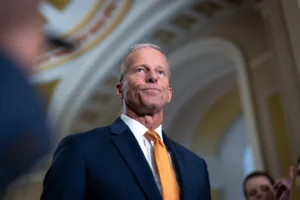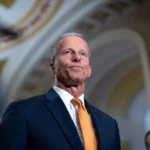Wyoming Leaders, Republicans Fume Over Bureau of Land Management’s ‘Conservation Rule’
Gov. Mark Gordon harshly criticized a Biden administration proposal to elevate conservation on federal lands
- Published In: Politics
- Last Updated: Jun 16, 2023
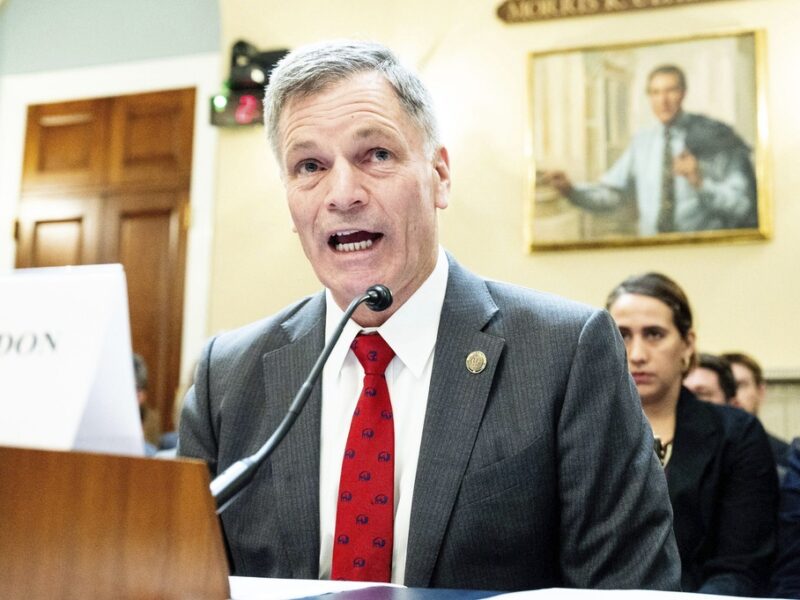
Wyoming Gov. Mark Gordon spoke out forcefully against a Biden administration proposal aimed at elevating the role of conservation on federal lands. (Alamy Live News via AP)
By Jacob Gardenswartz
Special to the Wyoming Truth
WASHINGTON — Wyoming Gov. Mark Gordon, Rep. Harriet Hageman (R-Wyo.) and other GOP elected officials and state leaders blasted the Biden administration during a U.S. House hearing on Thursday, accusing Washington bureaucrats of pushing a “radical” preservationist agenda over the interests of Western and rural Americans.
Lawmakers on the House Natural Resources Committee sparred for several hours over a new bill, which, if passed, would force the administration to rescind the proposed rule. Though the measure is unlikely to become law given President Joe Biden’s veto power, it demonstrates the fervency of Republicans’ contempt for his environmental agenda — and shows how Wyoming leaders are at the forefront of such critiques.
At issue is a recent proposal from the Bureau of Land Management (BLM) to elevate the role of conservation and preservation on federal lands. In overseeing roughly 10% of U.S lands, equating to nearly 250 million acres, BLM follows a “multiple use mandate,” considering the many resources such lands contain along with the various ways individuals seek to use them — be that recreation, logging, mining or agriculture.
According to the Biden administration, that process has wrongly prioritized development over environmental benefit. The new draft rule would rectify that balance by placing conservation on “equal footing” with energy development when it comes to land planning, administration officials contend.
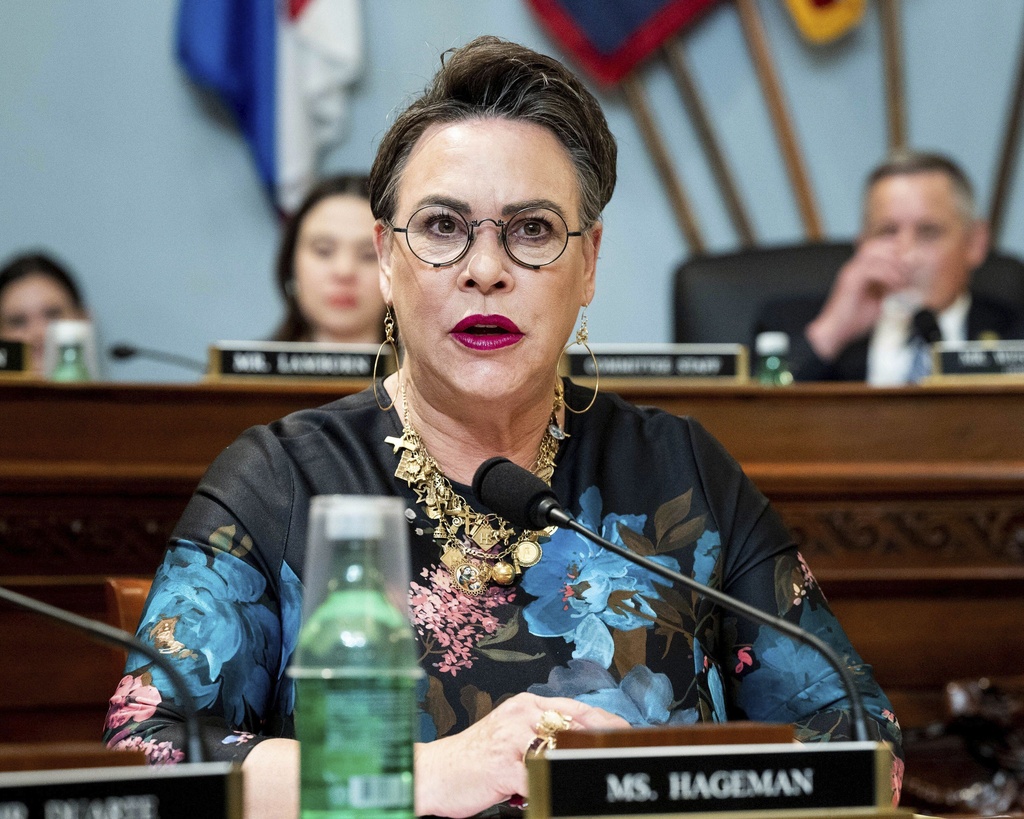
“For too long, land management planning has been dominated by extractive industries,” Interior Secretary Deb Haaland said at the Society of Environmental Journalists’ conference in April, shortly after the rule was publicly released. “This proposal is a long time coming and will go far to help address the growing pressures we’re seeing on our public lands from fossil fuel development and the impacts of the climate crisis.”
But Republicans in Washington and throughout the West were quick to respond with furor, painting the proposal as a Biden plot to kneecap oil and gas development and overtake local control.
“This rule isn’t about either conservation or landscape health, either one,” Hageman said in Thursday’s hearing. “It is about control.”
Conservation leasing: sound environmental policy or Washington overreach?
If allowed to take effect, BLM’s proposed rule would amend the Federal Land Policy and Management Act (better known as FLPMA) — a statute central to the agency’s duties overseeing hundreds of thousands of U.S. acres — to heighten the role of environmental planning.
According to that law, BLM must “take into account the long term needs of future generations” when managing those lands. Federal officials have pointed to increased natural disasters and the growing impacts of climate change as a clear justification for a change.
“Today, public lands are under severe stress from increasingly frequent and intense wildfires, historic drought and influx of invasive species and changing conditions on the ground driven by climate change. Simultaneously, public lands are under pressure from ever-increasing types and amounts of use,” BLM Principal Deputy Director Nada Wolff Culver testified.
By adding conservation — defined as “protection and restoration” of federal lands — as an allowed use, the policy will “help achieve our shared goals… to continue to manage public lands so they can support the multiple uses that we rely on now while also maintaining the health of the lands for future generations,” Wolff Culver added.
Among the biggest impacts of the proposed changes would be granting BLM the power to authorize “conservation leases” to encourage land remediation and ecosystem restoration.
According to administration officials, such leases might be granted to developers seeking to remediate the negative impacts of other types of land projects; an energy company seeking a new lease on several dozen acres for a solar development project, for example, might also lease other dilapidated lands for conservation and remediation. Individuals and environmental groups could lease lands in such a manner for a maximum of 10 years, with the goal of improving the nation’s ecological resilience.
After the proposal was announced, environmental groups were joyous. “The time is ripe for BLM to strengthen its commitment to conservation and bring its multiple use mandate into the 21st century, creating the strong and resilient stewardship needed for these changing times,” an official with the Natural Resources Defense Council said in a statement.
But many Republicans and groups representing agricultural and energy development saw things differently.
“This rule is so nebulous and it raises so many different questions that I don’t think it should have been put out as a proposed rule,” Kathleen Sgamma, president of the Western Energy Alliance, told lawmakers Thursday. “I don’t know what would come out of this.”
Hageman noted that even officials in the Small Business Administration — an independent agency within the federal government — have taken a public position against the rule, writing in a letter that the proposal “does not adequately consider the impacts to small businesses.”
“The very lifestyle of rural communities is at risk when burdensome regulations like this cripple the businesses that allow these communities to flourish,” Hageman concluded.
Competing economic and environmental concerns
Throughout Thursday’s hearing, Republicans and opponents of the proposed rule repeatedly articulated two main concerns: that the rule will negatively impact states’ budgets, and that it would circumvent local control.
Economically, whereas states may derive some tax revenue from federal energy development and recreation leases, whether they’d earn similar funds from conservation leases remains unclear.
During his Thursday testimony, Gordon noted that public land recreation throughout Wyoming “contributes substantially” to the state’s economy. Any funds generated from conservation leasing, conversely, would go to the federal government, Gordon argued. State Superintendent Megan Degenfelder has voiced similar concerns, writing in a letter to federal officials that the proposal would “negatively impact education funding in our state.”
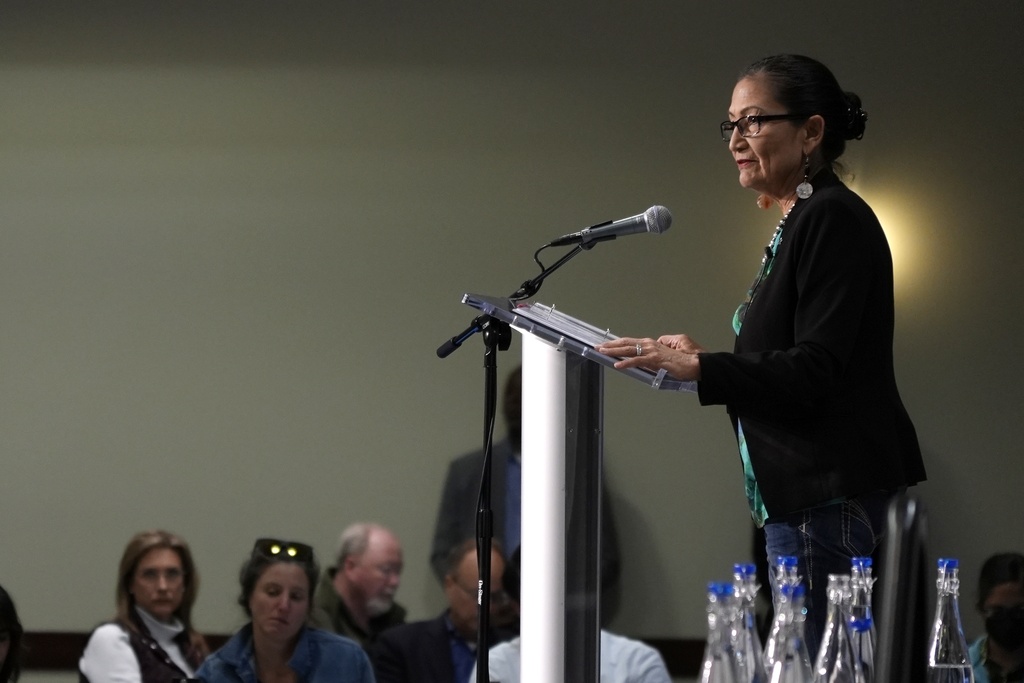
As to local control, Gordon argued state leaders should be allowed to manage such lands how they see fit.
“Wyoming ranchers, industries [and] sportsmen, are conservation minded and that’s true throughout the West. In the words of Teddy Roosevelt, conservation means development as much as it does protection,” he added.
BLM officials countered that the proposal seeks not to overrule local stakeholders but establish a new “framework.”
“The rule sets out a framework, it doesn’t make any decisions,” Wolff Culver said. “Any on-the- ground decisions will be made by local land managers.”
Still, officials argued the Biden administration overstepped its authority in pursuing such a policy.
“It is up to Congress to write the laws, not the executive branch to take them for a joy ride,” Gordon scolded.
What comes next?
Though Republicans appear poised to move forward with their bill to strike down the conservation proposal, its likelihood at becoming law is slim to none: even if a couple Democrats broke ranks to support the measure in the Senate, Biden would likely veto the bill.
So what happens now? Like any new agency rule, the BLM proposal is undergoing a period of “notice and comment” — where individuals and stakeholders can provide input.
That 45-day period was set to end June 20, at which point the rule would take effect barring any legal actions; some Republicans have threatened lawsuits, though none have yet materialized.
Officials announced during Thursday’s hearing they’d extended the comment period by an additional 15 days.
But such a concession did little to cull opposition.
“Extending the comment period for a mere 15 days seems like closing the gate after all but one cow is out of the corral,” Gordon responded in a statement.





